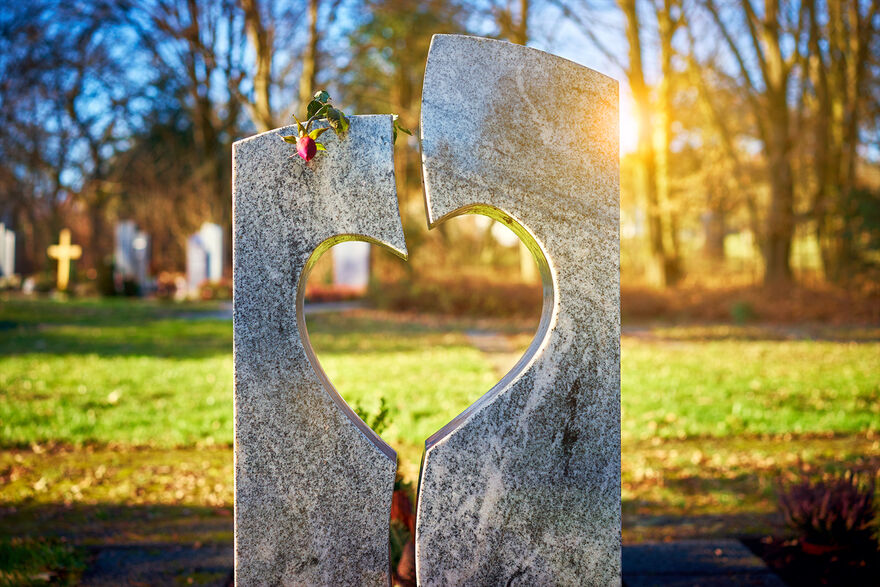This article looks at the issues that arise when there is a dispute as to the burial or cremation of a person.
Can you own a dead body?
The dead body of a person is not property and so whilst there is a duty to dispose of the body properly it is not possible to issue proceedings to “get it back”. Local Authorities may become involved where there is a dispute as to the disposal of a body such that it begins to pose a danger to public health. For example, in a dispute where parties cannot agree the location of a burial and the deceased is left at an undertaker’s for a prolonged period of time such that there is a real risk of deterioration of the body, the Local Authority may step in to take action.
What happens if there is a dispute?
If there is a dispute it is always going to be best to try to reach to some terms of agreement. At what is already an incredibly difficult time, an argument about the burial/cremation or location of the burial of a body only adds to the level of distressed experienced by anyone who knew the deceased. If agreement simply cannot be reached the Courts will intervene.
Under Section 116 of the Senior Courts Act 1981 there is jurisdiction for the High Court to appoint someone other than the person presumptively entitled to administer the estate for the specific purpose of arranging the disposal of the body.
The Courts may also intervene if for some reason the expressed wishes of the deceased in respect of the disposal of their body is against public decency for some reason.
For example, in the case of Oldham Metropolitan Borough Council v Makin [2018] the Court refused to agree that the Executor could honour the expressed wishes of the Moors murderer Ian Brady in respect of his directions for his funeral as they would cause offence. Instead directions were given that the funeral should take place in a manner that did not achieve publicity and that his body should not be disposed of in a place where it could be located or identified. The deceased was described as “uniquely evil” giving rise to special circumstances in which the Court should intervene.
Delay was also an issue in the case as the Court determined that unless it exercised its inherent jurisdiction there was a real risk that the body would continue to be undisposed of.
Other cases have determined that the Court will balance the wishes of the deceased and the reasonable requirements and wishes of the family who are left to grieve but that bodies should be disposed of with all proper respect and decency and without further delay.
Are the wishes of the deceased binding?
Wishes expressed in a Will or otherwise for arrangements for a funeral or as to whether a person should be buried or cremated are not binding but may be felt to be highly relevant by the Court.
In some cases, for example, an expressed wish to be returned to a country of birth for burial may be said to be a particularly weighty factor in the Court’s consideration and in seeking to resolve any dispute.
Previous case law has indicated that the wishes of the deceased, particularly those expressed in a Will, will be “the surest strongest guide” as to the steps that should be taken.
With all that said the wishes of the deceased whilst potentially highly relevant are still not determinative and cannot bind the executors or the administrators of the estate.
What steps can be taken?
If a dispute arises as to the disposal of a body then, if agreement cannot be reached an injunction should be sought immediately to prevent any disposal of the body and immediate steps should be taken to see whether the parties can reach agreement. Ideally agreement will be reached either by negotiation or mediation and the matter can be resolved by filing a Consent Order.
If agreement cannot be reached then the parties will need to ask the Court for a direction as to the disposal of the body which will require each party to put before the Court its best evidence as to what should happen and why.
All parties will be at risk as to the other side’s costs and so extreme care should be taken if such action is pursued.
The disposal of the body of a loved one can be an incredibly emotive topic where differences of opinion arise and the instruction of objective expert solicitors who are able to seek agreement can save both considerable legal costs and untold upset.
If this is an issue that affects you, you should not hesitate to contact our expert team who will be only too pleased to assist. Click here for further details.
The information on this site about legal matters is provided as a general guide only. Although we try to ensure that all of the information on this site is accurate and up to date, this cannot be guaranteed. The information on this site should not be relied upon or construed as constituting legal advice and Howes Percival LLP disclaims liability in relation to its use. You should seek appropriate legal advice before taking or refraining from taking any action.




